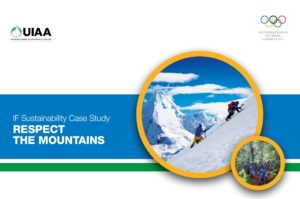
Mountains offer a place for everyone to be inspired, play and find adventure. They provide essential fresh water to billions of people worldwide and are home to a rich array of wildlife and unique plants. One hundred million tourists visit the European Alps alone each year – and every tourist leaves a footprint, often in the form of waste. Action is required to remove this waste and educate mountaineers about respecting the environment.






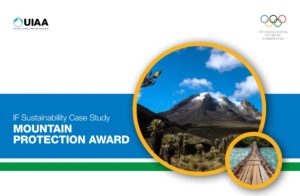
The rich yet fragile nature of the mountain ecosystem means it is imperative that we manage human induced impacts, to ensure both the sustainability of these regions and the future of International Climbing and Mountaineering Federation (UIAA) sports such as mountaineering, ice climbing and rock climbing.
Over recent decades, mountain regions have seen a substantial increase in tourism and sports activities, which has resulted in the over-exploitation of natural resources, increases in pollution and waste, changes in land use and disturbances to flora and fauna.
The UIAA’s Mountain Protection Award (MPA) has been designed to promote responsible mountain tourism practices and reward outstanding initiatives from mountain stakeholders.
Click here to watch the promotional clip: https://youtu.be/4wVbM0yfnNo





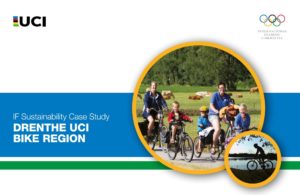
In 2016, Drenthe in the Netherlands became one of the three first cities and regions to be awarded the “Union Cycliste Internationale (UCI) Bike City/Region” label. Awarded for a four-year period, the label recognises cities and/or regions that both host UCI cycling events and demonstrate an outstanding commitment to cycling for all. Covering 2,500km2 and with a population of around 500,000, Drenthe promotes cycling as a way for its residents to achieve better health and well-being. Currently, 29 per cent of all trips are made by bicycle, though the region hopes to raise bike use by a further 20 per cent by 2020




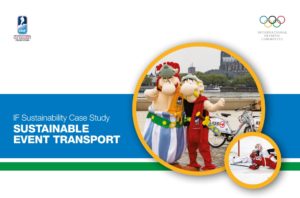
At the 2017 IIHF Ice Hockey World Championship (WM) in Germany, the International Ice Hockey Federation (IIHF), the Local Organising Committee (LOC), the city of Cologne and its public transport network, KVB, and local bike rental company Nextbike, teamed up to provide sustainable transport to all accredited participants and spectators. Participants could use WM-branded bicycles free of charge for the duration of the Championship. The benefits of cycling are well known. According to the UCI’s Cycling for All Manifesto: “Cycling can help tackle some of the pressing challenges facing humanity. Reduced air pollution, lowered traffic congestion, and improved public health are among the many benefits that greater everyday cycling around the world offers, accessible to all, rich or poor.”




As detailed in its Sustainability Statement, endorsed in 2012 by over 150 golf associations around the world, the International Golf Federation (IGF) regards safeguarding the environment as a top priority. Golf courses are often located in ecologically rich landscapes, and their construction is increasingly under pressure from land and water scarcity and environmental regulations. For this reason, the IGF and many of its members and partners have been working with the sustainability solutions of GEO Foundation and the United States Golf Association (USGA) “Green Section” to integrate sustainability into new golf facilities and major championships.





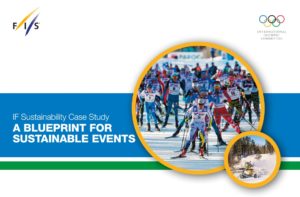
Climate change, natural resource scarcity and other sustainability concerns are threats to winter sports such as skiing. This is why the International Ski Federation (FIS) collaborated with the Lahti 2017 Nordic World Ski Championships Local Organising Committee (LOC) to make sustainability a cornerstone of the event. The slogan “Not for 10 days but for the next 100 years” accompanied all the LOC activities, raising awareness around the importance of making sustainability integral to championships. FIS guidelines require the National Federation, the host city and the LOC to respect the environment and promote its protection. With the aim of providing a sustainability blueprint for future FIS events, the Lahti LOC collaborated with organisations such as the Sitra Innovation Fund, which provided sustainability awareness workshops for partners and sponsors; EcoCompass, which helped deliver environmental certification; Stora Enso, a renewable materials provider; and Globe Hope, an eco-friendly design company







The Fédération Internationale de Football Association (FIFA) is touching the lives of millions of people all over the world. Through football competitions and its operations FIFA also generates jobs and interacts with a wide range of organisations. With this global reach and impact comes a heightened responsibility to preserve the inherent dignity and equal rights of each individual affected by FIFA’s activities. FIFA therefore considers respecting human rights both a social responsibility and moral obligation



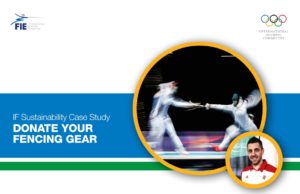
In March 2017, the International Fencing Federation (FIE) launched “Donate Your Fencing Gear”, a new long-term initiative encouraging fencers to donate their fencing equipment to fencers that may not have access to such materials. Following tests at the Junior & Cadet World Fencing Championships in Plovdiv, Bulgaria, in April 2017, the scheme was fully implemented at the World Fencing Championships in Leipzig, Germany, in July.



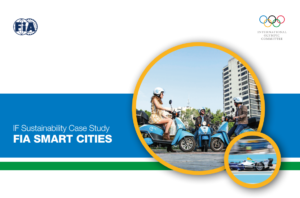
The number of people living in urban areas around the world is expected to grow by around 2.5 billion by 2050. With transport and mobility being two core elements of a liveable city environment, the world urgently needs plans and policies that tackle pollution, congestion and road safety hazards. Supporting the United Nations’ New Urban Agenda, the Fédération Internationale de l’Automobile (FIA) has taken a proactive role in shaping the future of our cities by creating the “FIA Smart Cities” initiative.



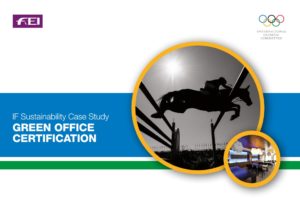
In line with its efforts to respect the environment, the Fédération Equestre Internationale (FEI) decided to renovate its headquarters in accordance with the Swiss Minergie construction standard for energy efficiency. On average, Minergie-compliant buildings consume 25 per cent less energy than conventional buildings. After moving into its headquarters, the FEI chose to go further by aligning its office operations with the sustainable character of its building. In 2017, the FEI started working with recycling specialist Interseroh to receive its Green Office certification, which recognises sustainable office practice in four areas: 1. Ensuring training for and commitment from employees. 2. Executing an optimised bin concept with visual enhancements. 3. Controlling waste processes, and defining responsibilities for bin clearance. 4. Communicating major alterations to the organisation’s waste disposal partner or internal contact. According to Interseroh, 80 percent of typical office waste is disposed of incorrectly and ends up in landfill even though many items could be recycled. Separating recyclable materials such as paper, PET, glass, aluminium, organic waste and coffee capsules optimises their use and also helps lower office costs


